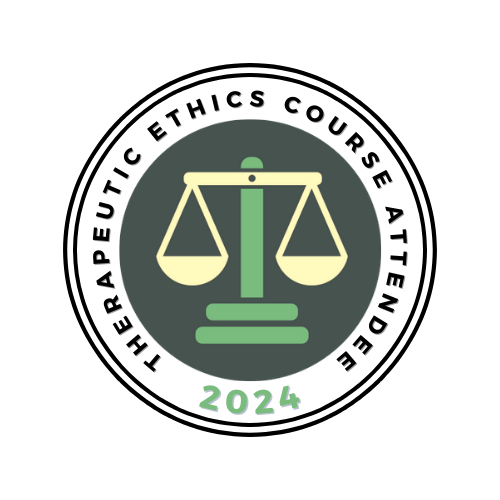Tanya Prochko
Credentials
Trauma and Attachment Therapist
Finances
- King David 19
- Jerusalem
- Email Me
- FREE CONSULTATION
-
 Business Hours
Business Hours
Tanya Prochko
 Verified
Verified
Credentials
Psychotherapist
Trauma and Attachment Therapist
MEd, MFT
Finances
500 NIS
N/A
Free Consultation
ABOUT THE THERAPIST
Unresolved trauma can influence your thoughts, behaviors, and relationships. You might notice it through persistent patterns like fight, flight, freeze, or fawn responses, emotional dysregulation, numbness, dissociation, or even unexplained physical discomfort. These are signals that your nervous system is asking for care and healing.
As a trauma-informed psychotherapist, I specialize in helping clients process and heal from past wounds so they can experience greater calm, presence, and fulfillment in their lives. My approach is integrative, drawing on somatic tools, polyvagal theory, and attachment-based therapy for deeper healing.
Through our work together, clients often find themselves developing healthier relationships, improved emotional regulation, greater attunement to their body’s signals, and a stronger connection to their authentic self.
If you're curious to learn more or explore whether we're a good fit, I welcome you to reach out for a complimentary phone consultation.
My approach is empathic, active, engaged, and goal-oriented. I take an integrative approach, drawing from a wide range of evidence-based modalities tailored to each client’s unique needs. To ensure therapy is practical and effective, I assign homework (optional) to help clients practice new skills between sessions, which speeds up therapeutic progress.
I specialize in treating all forms of trauma, including early developmental and attachment-related wounds. In addition to trauma work, I support adults who are looking to strengthen their sense of self, clarify their identity, develop assertiveness, and establish healthy personal boundaries.
Anxiety is a common concern among my clients. It may present with identifiable triggers or arise without an apparent cause. Together, we’ll learn to understand what it’s trying to tell you and help it loosen its hold so you can feel more at ease.
I work with adults across all life stages, including older adults (65+), who may find that as the demands of work and parenting ease, unresolved emotional patterns and triggers surface more clearly. This stage of life can be a powerful time to engage in deep inner work and strengthen connections with adult children.
I also work with adolescents (16+) who are navigating challenges such as anxiety, low self-esteem, identity exploration, trauma, distress tolerance, and the pressures of overachievement. My approach with teens is supportive, empowering, and attuned to their unique developmental needs.
As a therapist, I see my role as a steady and attuned guide. We’ll gently explore patterns that may no longer serve you, and begin to shape new ways of relating to yourself and the world around you. I’ll support you in stepping beyond your comfort zone with care, intention, and attunement to your readiness so that growth feels empowering, not overwhelming.
Tanya trained in Counseling Psychology at Fordham University of New York. In the earlier stages of her career, Tanya worked with the East Harlem population providing individual and group therapy to families of incarcerated mothers and victims of domestic violence. She was also part of the schizophrenia research team at Nathan S. Klein Institute for Psychiatric Research. Tanya pursued her specialty in Marriage and Family Therapy after moving to California and provided clinical services to older adults through Jewish Family Service of Los Angeles, treating a wide range of issues including grief, trauma, isolation, depression, and anxiety. After making Aliyah in 2012, Tanya opened a private practice in Israel. Seeing a wide gap between the mental health needs of the English-speaking public and their ability to access help in their mother tongue, Tanya founded Get Help Israel - The Israel Association of Mental Health Professionals. The organization has helped over 200,000 people globally to find the right help and improve their quality of life.
QUALIFICATIONS
MEd
Fordham University
2005
MFT
Phillips Graduate Institute
2006
Degree
MEdEducation
Fordham UniversityYear of Graduation
2005Degree
MFTEducation
Phillips Graduate InstituteYear of Graduation
2006Years in Practice
20
ADDITIONAL CREDENTIALS
BA in Psychology (Cum Laude) - YU, Stern College 2002
EMDR trained Levels 1 & 2 - EMDR Institute of Israel, 2016
Interpersonal Psychotherapy (IPT), 2017
Guided Imagery, 2017
Gottman Couples Therapy, 2018
Somatic Intervention (SI) - Ricki Bernstein - 2020
Attachment Wounds - Then and Now (SI) - Ricki Bernstein - 2021
Polyvagal Theory in Clinical Practice - Deb Dana - 2022
Brainspotting Phase 1 - David Grand - 2024
SEE FAR CBT for PTSD - Prof. Mooli Lahad, 2025
DISTANCE COUNSELING
Telephone Counseling, Online Therapy
BLOG POSTS
.png)
PERFECTIONISM is the Enemy of FREEDOM
It's getting close to Pesach and I'm thinking: what do I want to focus on at my seder table with my adolescent children who can now carry intelligent conversations and think about things in a deeper and more complex way? Afterall, our exodus from Egypt is not just a ...

How to Choose the Right Therapist
Choosing the right therapist may feel overwhelming. Here are some tips to help guide you.
PRIMARY SPECIALTIES
Abuse
Anxiety / Panic
Codependency
Trauma / Post Traumatic Stress Disorder PTSD
Attachment Trauma, Early Developmental Trauma
ADDITIONAL SPECIALTIES
Adjustments
Depression
Domestic Violence
Family Issues
Grief
Holistic
Life Transitions
Parenting Issues / Training
Self-Esteem
Sexual Abuse / Rape
Stress Management
Older adults/aging
CLIENT FOCUS
Population
Adolescents
Adults
Men
Women
Geriatric
Adolescents age 16+
Languages Spoken
English
Native Language
English
TREATMENT APPROACH
Body-Mind PsychotherapyBody-mind psychotherapy is an integrative approach to psychological treatment that draws from both psychotherapeutic and somatic/body-based approaches. It emphasizes the interconnection between physical, emotional, cognitive and spiritual aspects of being. This approach seeks to help individuals explore how physical sensations, emotions, thoughts and beliefs influence their behavior and well-being. Through this exploration, individuals can gain insight into how the body and mind interact to create patterns of behavior, and how those patterns can be changed to promote healing and wellness.
Brainspotting (BSP)Brainspotting is a form of psychotherapy that uses eye positioning and body-based approaches to help people identify, process, and release emotional and physical distress. It is based on the idea that the body and mind are interconnected and that certain eye positions can help access and release stuck, unresolved emotions. Practitioners help clients reprocess negative events and retrain emotional reactions by guiding clients’ eyes, with a pointer, across their field of vision to find “brainspots”. Brainspots are eye positions that activate a painful emotion or trauma. Through the use of bilateral sound and/or vibration, the therapist helps the client to access and process difficult or traumatic memories and emotions, leading to lasting and positive changes in behavior and well-being.
Cognitive Behavioral Therapy (CBT)Cognitive Behavioral Therapy (CBT) is a type of psychotherapy that focuses on how one's thoughts, feelings and behaviors are connected and can be changed. It is based on the idea that how we think (cognition) and how we feel (emotion) can influence how we behave. CBT helps people identify and challenge distorted thinking and replace it with more balanced thinking, leading to improved mood and behavior. ‘Homework’, usually containing practical writing exercises, is often completed by the client between sessions to reinforce the therapy. Examples of tools that practitioners often use are journaling, challenging beliefs, and mindfulness.
Eye Movement Desensitization and Reprocessing Therapy (EMDR)Eye Movement Desensitization and Reprocessing (EMDR) is a psychotherapy treatment that was originally designed to alleviate the distress associated with traumatic memories. It uses a structured approach to address the past events that may be causing current distress, and uses bilateral stimulation, such as eye movements, to activate different neural networks in the brain in order to reduce symptoms of trauma. EMDR has been found to be effective for a wide range of mental health issues, including anxiety, depression, and PTSD.
Guided ImageryGuided imagery is a form of visualization used for relaxation and healing. It uses the power of the imagination to create positive changes in a person's thoughts, feelings, and behaviors. It is also used to reduce stress and anxiety, cope with physical and emotional pain, increase motivation, confidence, and self-esteem, and to improve focus and concentration. During a guided imagery session, the practitioner will guide the client through a series of visualizations, using words and descriptions to help them create mental images in their mind. These visualizations can take many forms, such as a comforting place from the past or the client’s future goals.
Holistic PsychotherapyHolistic psychotherapy emphasizes the individual's interconnectedness between the individual's physical, mental, emotional, and spiritual aspects and views them as inseparable components of a single holistic system. Holistic psychotherapy focuses on understanding how these components interact and affect a person’s wellbeing. The goal of holistic psychotherapy is to create a sense of wholeness and harmony within the individual, and to foster self-awareness and self-care. Holistic practitioners use a variety of approaches, including traditional talk therapy, mindfulness practices, and body-based therapies like movement therapy. They also may incorporate nutrition, physical activity, and other lifestyle factors into treatment plans.
Internal Family Systems (IFS)Internal Family Systems (IFS) is an evidence-based psychotherapy that uses the metaphor of an internal family of parts to help people gain awareness of how different parts of themselves can interact in healthy and unhealthy ways. IFS encourages people to become curious about their different parts, with the goal of helping them gain access to their true Self or core. Through this process, people can learn to recognize and care for the different parts of themselves, as well as develop compassionate understanding for the origins of their parts. A key principle of IFS is that each part within the person has its own positive intention and is trying to protect the person in some way. By understanding the positive intention of each part, the practitioner and client can work together to help the parts feel heard and understood, and to find more adaptive ways of meeting their needs. IFS has been found to be an effective treatment for a variety of mental health issues, including depression, anxiety, trauma, and relationship issues.
Mindfulness-Based Cognitive Therapy (MBCT)Mindfulness-Based Cognitive Therapy (MBCT) is a form of therapy that combines cognitive behavioral therapy with mindfulness practices. It is based on the idea that our thoughts, emotions, and physical sensations can affect our mental health. MBCT helps individuals become aware of their thoughts, emotions, and physical sensations in order to gain insight and control over them. MBCT helps clients learn how to recognize their sense of being and see themselves as separate from their thoughts and moods. This separation can free the client from thought patterns in which the repeated negative messages may be dominating the client’s focus. After developing an awareness of the separation between thoughts, emotions, and the self, people in treatment may find that while the self and the emotions may exist simultaneously, they do not have to exist within the same dimension. The healing can take place when one learns how to interject positive thoughts into negative moods and thereby create a shift in mood.
Person-Centered Therapy (Rogerian Therapy)Person-centered therapy, or Rogerian therapy, was developed by Carl Rogers in the 1940’s. It is a form of talk therapy that emphasizes the importance of providing psychological safety, unconditional positive regard, and empathic understanding to clients. This type of therapy is based on the belief that individuals have an innate capacity for self-actualization and self-understanding and that the therapist's role is to provide a supportive environment in which this process can take place. Through the use of active listening, open-ended questions, and non-judgmental reflection, the therapist helps the client to explore their thoughts, feelings, and experiences in a safe and accepting environment. By doing so, clients are able to gain insight into their issues, develop a greater understanding of themselves, and work towards personal growth.
SEE FAR CBT SEE FAR CBT is an integrative, evidence-based treatment model for trauma that combines elements of Cognitive Behavioral Therapy (CBT) with somatic awareness, guided imagery, and narrative techniques. Developed by Prof. Mooli Lahad, SEE FAR CBT supports clients in processing traumatic experiences through both verbal and non-verbal channels, using tools like projection cards and body-focused techniques to externalize and reconstruct the trauma narrative. The model emphasizes emotion regulation, nervous system stabilization, and the development of a sense of agency. SEE FAR CBT is especially effective for individuals who struggle to verbalize traumatic memories, as it engages imagination, visual processing, and physical sensations to access and transform distressing experiences.
Trauma-Focused Cognitive Behavioral Therapy (TF-CBT)Trauma-Focused Cognitive Behavioral Therapy (TF-CBT) is an evidence-based practice used to help children, adolescents and their parents who have experienced a single or multiple traumatic events. This type of therapy combines cognitive and behavioral strategies to help people process their traumatic experiences, manage their distress, develop coping skills, and restore their sense of safety and well-being. TF-CBT focuses on education and skill-building, creating an environment of safety and trust, and using therapeutic activities to help people understand their responses and control their symptoms. Children are shown how perceptions may be distorted and are given the tools to redesign those perceptions. TF-CBT is a skills-based model, and it requires the child and parent to practice its components in order to be optimally effective. Parents and children are commonly asked to practice skills at home.
Somatic Intervention; Attachment-based Therapy; Integrative; Collaborative
SERVICES OFFERED
Individual Therapy
Consultation
Hadrachat Horim
Home-based Therapy
Workshops/Educating

BLOG POSTS
.png)
PERFECTIONISM is the Enemy of FREEDOM
It's getting close to Pesach and I'm thinking: what do I want to focus on at my seder table with my adolescent children who can now carry intelligent conversations and think about things in a deeper and more complex way? Afterall, our exodus from Egypt is not just a ...

How to Choose the Right Therapist
Choosing the right therapist may feel overwhelming. Here are some tips to help guide you.

 Verified
Verified


